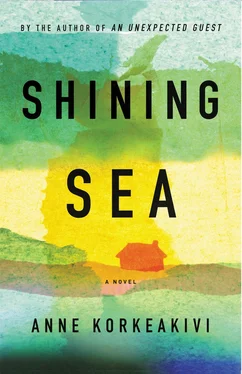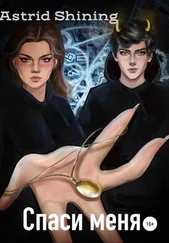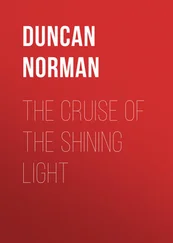Blue skies, only you for me
Only youuuu…
The streets of Los Angeles roll by, the jacarandas in full bloom. She would watch the wings on this car before Patty Ann ran off, day after day, as it pulled up in front of the house and Lee honked. She’d say to Patty Ann: Hmm. What has wings and honks? A duck. But Patty Ann would gather up her sweater and books and rush out. The Dodge has started to take on a rusty look since, and now there’s the baby sitting up front with Patty Ann — while Lee is off picking up a few dollars here or there, anything but a decent day’s work.
Someday Patty Ann will go to Vassar with her aunt Jeanne, Michael used to say. Or any college she wants. My smart girl.
She couldn’t have tied Patty Ann up inside the house, though. She couldn’t pick the cost of tuition at Vassar off a lemon tree. If only she’d called Ronnie sooner. Maybe he would have fixed more than her stove. Maybe he would have fixed her oldest daughter also. It will be such a relief, not having to do all this on her own anymore.
“The jacarandas throw the whole city into a purple haze,” she says.
Patty Ann laughs. “Purple haze, Mom?”
The baby — Kennedy, Patty Ann named him, like some sort of joke — sneezes, and a stream of snot rolls from his little nose. It glides freely, spooling into the down of his upper lip, into the sweet of his mouth. Patty Ann looks over at him, and suddenly the car is lurching toward the curb. Her daughter jumps out, short skirt pulling against her thigh, just a bit plumper than it was in high school, runs to the metal-weave garbage can on the street corner, and vomits.
Her heart sinks. And then, because this should be a joyous thing but there’s no way it can be, her heart sinks a little further.
When Patty Ann slides back into the car, she hands her the hankie she used for Kennedy, neatly folded over the wet spot. “How long?”
“I don’t want to talk about it.”
“How long?”
“I don’t know. Five weeks.”
“Does he know?”
“Of course.”
“And?”
“And Lee’s fine with it. We’re both fine with it. We’re happy!”
But her daughter sounds anything but happy. At the christening, Lee and Patty Ann told everyone they had the baby cause President Kennedy had put married men with children on the very bottom of the call-up list for the draft and LBJ hadn’t changed at least that yet. But Patty Ann’s tone turned from triumphant to defensive soon after. A second baby can’t be good news when they can barely keep the first one in disposable diapers. And forget using cloth — Patty Ann and Lee’s tiny bungalow, in Venice, doesn’t have a washing machine. Patty Ann and Lee’s tiny bungalow doesn’t have anything.
With Ronnie moving in his leather living room set, she can give them the sofa. She can give them the Melmac plates and rocking chair also. Too bad Ronnie’s apartment doesn’t have its own washing machine. She could have given them that, too. Ronnie wouldn’t have minded. Ronnie is generous to a fault.
“You know,” she says, “what’s done is done. But there are things you can do to avoid this happening a third time, Patty Ann. Easy, effective ways that are now legal.”
Patty Ann slams on the brake. The baby jolts forward and lets out a wail.
“Mom!”
She rubs Kenny’s back and checks over her shoulder to make sure the flowers are all right. “Well, I’m just saying. You’re modern in all these other ways. Why not be modern in a way that’s useful?”
“ Mom . Anyhow, what about you? You’re certainly no model of family planning.”
“We are not talking about me. Your father was a man of faith, and the only method the pope approves is the rhythm method. Which doesn’t work unless, like the pope, you’re celibate. Proof positive: Francis, Sissy.” She ignores Patty Ann’s grimace. The kids want to do all this love business themselves but don’t want to think their parents ever have. “Besides, and most important, you were all wanted. And we were able to care for you. We didn’t know your father was suddenly going to die. That’s not something we chose, Patricia Ann.”
“We want our babies, too. Money is not everything, Mom. Love counts for something also.”
She takes the baby’s fingers out of her hair again, turns him around, and sits him down on her lap facing forward. She won’t rise to the bait. Marriage is a lifelong partnership, not just a weekend adventure. That’s the part Patty Ann overlooked. If only Lee had gone to Vietnam. Not only would Patty Ann not be in this mess, the army might have made a man of him. And Patty Ann would be in college, as planned. Everything would be different.
But a house can’t be built on “if onlys.” Nothing can be.
They drive past the Woolworth’s and turn right. Two girls stand on the street corner, waiting for the light to change, laughing. One, in a short pink skirt, holds a tiny white dog in her arms. She was once a girl like that, not in a short skirt but a freshly ironed yellow dress, passing out magazines to the returning soldiers, dreaming — without for a second actually imagining — that her future husband might be among them. And then there Michael was, propped up in a hospital bed, gaunt but so calm, so handsome.
This life of hers as a grown woman happened, bang, just like that.
Patty Ann should be a girl like those girls, a little dog in her hands rather than a baby, and dreams in her head of a future yet to happen. Why didn’t she and Patty Ann have this conversation before Patty Ann went and got knocked up? And still before that, before her daughter went running out to that stupid car, honk honk honk, with Lee sitting behind the steering wheel? Why is it women aren’t allowed to talk about private things with their daughters when they can still use the knowledge?
“I tried the Pill,” Patty Ann says. “It made me fat.”
“Having kids makes you fat,” she says.
She jogs her feet up and down to make Kenny giggle. His warm, chubby hands grasp at her fingers. Having babies hasn’t made her fat. At forty-one, she feels lighter than she did as a girl, as though each child she’s given birth to has taken away several pounds of her flesh. She thought Ronnie might want to have a child with her, too, while it was still possible, but he insists being stepfather to her children will be enough to make him happy. With Ronnie, the rhythm method seems likely to work just fine. She and Michael could barely keep their hands off each other long enough to sign their marriage certificate. Ronnie holds her hand, then kisses her cheek good night.
It’s been five years since she became a widow. Five years is a long time. She really wouldn’t have minded a little more than a kiss on the cheek from Ronnie, especially now she’s agreed to marry him.
She flicks the thought away as though an ash from her cigarette. In some ways, Ronnie feels more like a friend than a soon-to-be new husband. But a friend is good. A friend is what she needs. The last thing she wants is to try to replace Michael.
“You know, Mom,” Patty Ann says, “you didn’t go to college. You were barely any older than I was, and you were perfectly happy married to Dad, right? And it’s not like you didn’t rush into marriage. I mean, at least I knew Lee.”
She snaps out of her dirty thoughts. “Don’t you compare your father’s and my marriage to your and Lee’s. Don’t you ever.”
They have arrived. Patty Ann drives through the front gates of Holy Cross Cemetery, and they continue in silence toward the mortuary. The parking lot is full today. Young families button sweaters over little kids, middle-aged children assist wobbly grandparents. Everyone looks impossibly alive. In the first row of cars, Mike leans against Ronnie’s Chevy — her station wagon is in the shop again. Sissy plays on the ground by his feet. The top of Luke’s head is just visible, slunk down inside.
Читать дальше











